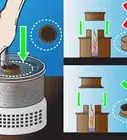This article was co-authored by wikiHow staff writer, Luke Smith, MFA. Luke Smith is a wikiHow Staff Writer. He's worked for literary agents, publishing houses, and with many authors, and his writing has been featured in a number of literary magazines. Now, Luke writes for the content team at wikiHow and hopes to help readers expand both their skillsets and the bounds of their curiosity. Luke earned his MFA from the University of Montana.
There are 11 references cited in this article, which can be found at the bottom of the page.
Learn more...
A smoky, tangy cut of meat is a marvelous, priceless thing, but the cost of a commercial smoker is, on the other hand, quite pricey. But what is a smoker really, other than an enclosed chamber, some heated wood chips, and a rack? With that logic in mind, we can broaden our minds and pull some DIY wizardry to make a smoker out of just about anything. We’ll show you how to assemble hot smokers out of an oil drum or flower pot, and cold smokers out of a metal trash can or a filing cabinet, for luxury flavor on the cheap.
Things You Should Know
- Drill exhaust holes in a 55-gallon oil drum, then install a charcoal basket and a grill grate inside to make a quick and easy hot smoker.
- Place a hot plate, a metal pie pan filled with wood chips, and a small grill grate in a terracotta pot. Place another, inverted pot on top for a makeshift hot smoker.
- Set a hot plate, a pie pan with wood chips, and a large grill plate into a galvanized steel trash can to assemble a quick cold smoker.
- Drill holes in the drawers of an unpainted filing cabinet, then insert a hot plate, metal pie pan, wood chips, and grill grates for a business-casual cold smoker.
Steps
Oil Drum Hot Smoker
-
1Drill 4 holes around the side of an oil drum, 7 in (18 cm) from the top. Use an electric drill and a step bit to drill four 1⁄4 in (0.64 cm) holes into an unlined, unpainted, 55-gallon, metal oil drum. Evenly space the holes around the circumference of the barrel, and place them 7 in (18 cm) down from the lid.[1]
- We’ll screw bolts into the holes, and the bolts will act as rests for a grill grate.
- Optionally, drill 4 more holes about a foot beneath the original holes to accommodate an additional grill grate.
-
2Screw four 1⁄4 in (0.64 cm)-wide, 3–4 in (7.6–10.2 cm) bolts into the holes. Use a wrench to screw in the holes, then fasten them from the inside with matching nuts. These bolts will support your grill grate, which will hold your meat.[2]Advertisement
-
3Drill 3 more holes around the sides, 4 in (10 cm) from the bottom. Using the same bit, make 3 evenly spaced 1 in (2.5 cm) holes around the circumference of the bottom of the barrel. These will act as air intake holes to provide oxygen to the burning wood chips.[3]
-
4Install 3 steel pipe nipples, 2 steel pipe caps, and a ball valve. Screw 3 .75 in (1.9 cm) steel pipe nipples into the 3 exhaust holes. Then, add a matching pipe cap to 2 of the pipes. Finally, attach a .75 in (1.9 cm) ball valve to the last pipe nipple.[4]
- The ball valve can be opened and closed to regulate the heat inside, and the caps can be removed to quickly cool the barrel after smoking.
-
5Drill 8 .25 in (0.64 cm) holes in the lid of the drum, and add a handle. Evenly space the holes around the top of the lid. These will act as air output holes that allow the smoke inside the drum to escape, while regulating the temperature inside. Then, drill 2 additional holes and fit a metal door handle to the center of the lid, for easy access.[5]
- While you’re here, sink a grill thermometer through one of those holes, for easy temperature monitoring.
-
6Place a 22 in (56 cm) charcoal basket on 4-5 bricks inside the drum. Place the bricks on the floor of the drum, then place the charcoal basket on the bricks. The bricks allow air to flow up and into the basket, encouraging smooth burning and ample smoke.[6]
-
7Place a 22 in (56 cm) grill grate onto the inside bolts. Your grill grate will sit well above the charcoal basket, keeping your meat safe from charring, but close enough to get good and smoky.
-
8Light charcoal in the basket, and let it heat for about 1-2 hours. Fill the charcoal basket to the top with coals, and use a chimney lighter to get them going. Let them burn for a couple hours, until the smoke is thin and bluish in color.[7]
-
9Place your meat on the grill, and smoke it according to your recipe. Monitor the temperature and make sure it stays around 225–240 °F (107–116 °C), opening and closing the ball valve at the bottom of the drum to heat and cool it, respectively. Let your meat smoke for 6-8 hours, or according to your recipe.[8]
- Afterward, let your smoker close the valves of the smoker and place aluminum foil in the holes of the lid, to extinguish the coals.
Flower Pot Hot Smoker
-
1Place a hot plate at the bottom of a 14 in (36 cm) flower pot. Feed the hot plate cord down through the hole at the bottom of the pot. To make the whole thing more stable (and ensure you don’t have a wobbly smoker), place the pot on top of 2 or 3 bricks, to create a raised platform to accommodate the burner cord.[9]
- Set the hot plate to high now, while you still have easy access to it. Plug it in later when you’re ready to cook to get the heat going.
-
2Set a metal pie pan filled with damp wood chips on top of the hot plate. Choose a pie pan small enough to sit atop the burner, but large enough to just about meet the sides of the flower pot, for maximum heat and smoke. That’s where the damp wood chips come in. Fill the pie plate full of ‘em, so that the chips sit level with the lips of the plate.[10]
- We recommend using hickory, mesquite, or oak chips for general-purpose smoking. Soak them in water overnight to get them good and damp before cooking, to make for plenty of smoke.[11]
-
3Place a small grill plate in the pot, and cover it with another flower pot. Set an 8 in (20 cm) grill plate on top of the chips—ideally, the grill plate just about touches the chips. Then, flip an identical, second flower pot upside-down over the first, lining up the edges of the pots to make them as snug as possible.[12]
-
4Plug in the hot plate and let it heat to 200 °F (93 °C). Thread a thermometer prong into the hole of the upside-down pot. Then, plug in the burner to get it going. Let it preheat for about 30 minutes, and prepare your meat according to your recipe while you wait.[13]
-
5Cook your meat to and internal temperature of 170 °F (77 °C). Smoke smaller cuts of meat, like small chickens, bacon, or cuts of pork, for a couple hours, or until they hit 170 °F (77 °C). Use a meat thermometer every half hour or so to monitor the temp.[14]
- Always use heat-proof gloves to handle any part of the DIY smoker.
- Also monitor your wood chips, adding more as they burn down. Use a grill hook to lift the grill plate from the pot when you need to access them.
- Keep small children and animals away from the smoker any time it’s in use.
Trash Can Cold Smoker
-
1Bore a hole about 6 in (15 cm) from the bottom of a metal trash can. Use a circular bit on an electric drill to bore a 2 in (5.1 cm) hole 6 in (15 cm) up from the bottom of a galvanized steel trash can.[15] And use a new, never-used trash can. Even with some TLC, a used trash can just isn’t worth the risk, you know?
- We’ll use this hole as an exit for a hot plate cord.
-
2
-
3Set a pie plate with soaked wood chips and a metal grill atop the burner. Set the pie plate directly on the burner, and set the grill directly on top of the pie plate.[17] The grill plate from a standard charcoal grill will work great.
- Soak your wood chips in water overnight to saturate them, which makes for more intense smoke. Go for apple or cherry wood chips for some heavy-hitting Texas flavor, or allspice wood to add a Jamaican tang to your dish.[18]
-
4Secure the lid, plug in the hot plate, and let it smoke for about 45 minutes. The metal of the trash can may heat up quite a bit, but the large space inside will take some time to get up to temperature.[19] Use oven mitts to handle any component of the smoker while it heats. Don’t worry about temperature here, since this is a cold smoker; we’re just giving the wood chips some time to burn and get going.
-
5Cold smoke your meat for 4-6 hours. Keep the meat inside the smoker for about 5 hours, or longer if you want a more flavorful cut.[20] Then, remove the meat from the smoker and cook it according to your taste. Remember, this is a cold smoker, and won’t actually cook your meat so only use it to smoke preserved cuts like salted, cured, or fermented meats.
Filing Cabinet Cold Smoker
-
1Drill 1.5 in (3.8 cm) holes in the drawers of a filing cabinet. It’s crucial that the filing cabinet be unpainted, as painted filing cabinets may contain harmful chemicals. With an electric drill and a circular drill bit, bore 2 rows of holes (about 7 holes each) in the metal bottom of each upper drawer.[21] Space the holes about 3 in (7.6 cm) apart. These will allow smoke to filter through all levels of the cabinet.
- Also bore a hole on the bottom right corner of the front of the bottom drawer, to snake a hot plate cord through.
- Optionally, bore additional, smaller holes in the side of the filing cabinet for thermometers, boring 1 hole on the level of each drawer. Thermometers will provide increased smoking accuracy when smoking according to a recipe.
-
2Place wood planks and metal racks on the bottom of each drawer. Heat-safe cooling racks work well, but you might also use food-safe metal mesh. Lay down a few small, parallel planks of scrap wood or bricks under the racks to keep them elevated and ensure the meat smokes evenly on all sides.[22]
-
3Place a hot plate and wood chips in the bottom drawer of the cabinet. Snake the cord of the hot plate out the hole in the front of the drawer. Then, place soaked wood chips in a metal container like a tea kettle or pie plate, and set them on the hot plate. Make sure that the wood chip container can fit when you close the drawer.[23]
- Soaked wood chips give off more smoke. Use a variety like oak or cedar for a strong flavor.
-
4Set the hot plate to high and smoke your meat for 4-6 hours. Place your meat on the wire racks—meat in the lower drawers will get smokier, faster—and let the wood chips do their thing. Remember, this is a cold smoker, so anything you smoke will have to be cooked properly later![24]
- Only cold smoke preserved meats, like fermented, cured, or salted cuts, since cold smokers require the meat to be held at unstable temperatures for extended periods.
- Alternatively, swap the hot plate and wood chips for a pellet tube smoker. Place a few bricks on the floor of the bottom drawer, pour wood pellets into the tube and light it to get smoking.[25]
Things You’ll Need
Oil Drum Hot Smoker
- Unlined 55 gallon oil drum
- Grill grate
- Charcoal basket
- Electric drill
- Step bit
- Steel pipe nipples and caps
- Ball valve
- Metal door handle
Flower Pot Hot Smoker
Trash Can Cold Smoker
Filing Cabinet Cold Smoker
- Unpainted filing cabinet
- Electric drill
- Circular drill bit
- Metal racks
- Hot plate
- Metal pie pan
- Wood chips
Warnings
- Always wear eye protection and practice caution when boring holes in metal surfaces.⧼thumbs_response⧽
- Never cook or smoke food in dirty cooking apparatuses, or apparatuses with harmful paints, plastics, or other substances.⧼thumbs_response⧽
References
- ↑ https://smokingmeatgeeks.com/ugly-drum-smoker-plans-uds-build/
- ↑ https://smokingmeatgeeks.com/ugly-drum-smoker-plans-uds-build/
- ↑ https://smokingmeatgeeks.com/ugly-drum-smoker-plans-uds-build/
- ↑ https://smokingmeatgeeks.com/ugly-drum-smoker-plans-uds-build/
- ↑ https://smokingmeatgeeks.com/ugly-drum-smoker-plans-uds-build/
- ↑ https://smokingmeatgeeks.com/ugly-drum-smoker-plans-uds-build/
- ↑ https://smokingmeatgeeks.com/ugly-drum-smoker-plans-uds-build/
- ↑ https://smokingmeatgeeks.com/ugly-drum-smoker-plans-uds-build/
- ↑ https://www.poughkeepsiejournal.com/story/life/2017/07/26/stack-couple-terra-cotta-flowerpots-diy-smoker/510844001/
- ↑ https://www.poughkeepsiejournal.com/story/life/2017/07/26/stack-couple-terra-cotta-flowerpots-diy-smoker/510844001/
- ↑ https://www.delish.com/cooking/a36869381/best-wood-chips-for-smoking/
- ↑ https://www.poughkeepsiejournal.com/story/life/2017/07/26/stack-couple-terra-cotta-flowerpots-diy-smoker/510844001/
- ↑ https://www.poughkeepsiejournal.com/story/life/2017/07/26/stack-couple-terra-cotta-flowerpots-diy-smoker/510844001/
- ↑ https://www.poughkeepsiejournal.com/story/life/2017/07/26/stack-couple-terra-cotta-flowerpots-diy-smoker/510844001/
- ↑ https://www.youtube.com/watch?v=LUS1jeTGc68&t=41s
- ↑ https://www.youtube.com/watch?v=LUS1jeTGc68&t=75s
- ↑ https://www.youtube.com/watch?v=LUS1jeTGc68&t=84s
- ↑ https://www.delish.com/cooking/a36869381/best-wood-chips-for-smoking/
- ↑ https://www.youtube.com/watch?v=LUS1jeTGc68&t=99s
- ↑ https://www.youtube.com/watch?v=LUS1jeTGc68&t=99s
- ↑ https://www.youtube.com/watch?v=6bPF1hAE1zI&t=97s
- ↑ https://www.youtube.com/watch?v=iP-0CyjoEuE&t=113s
- ↑ https://www.youtube.com/watch?v=iP-0CyjoEuE&t=68s
- ↑ https://www.bonappetit.com/columns/obsessivore-columns/article/backyard-cold-smoker
- ↑ https://www.bonappetit.com/columns/obsessivore-columns/article/backyard-cold-smoker

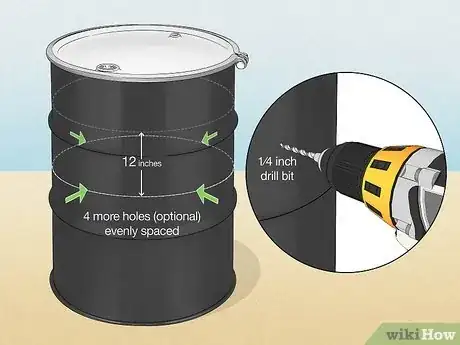
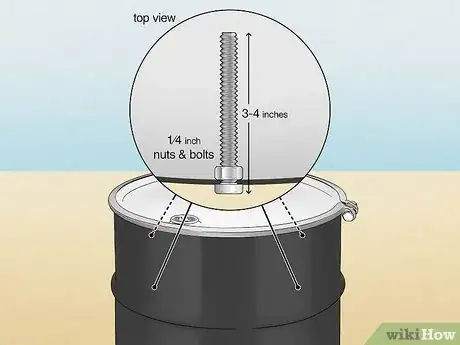
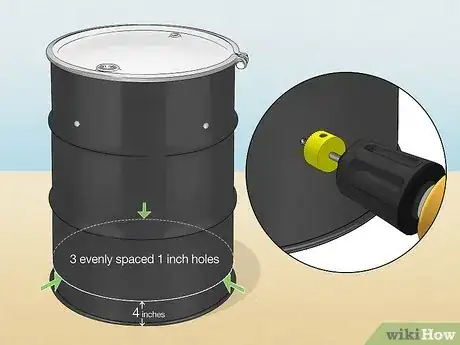




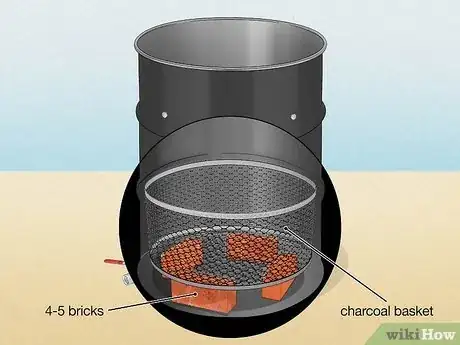
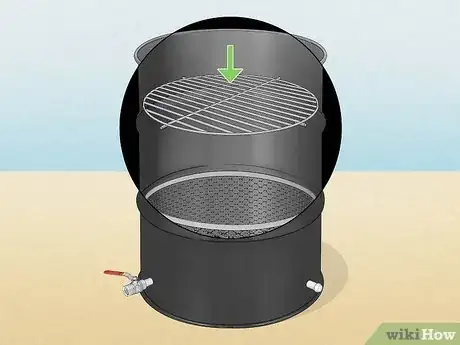

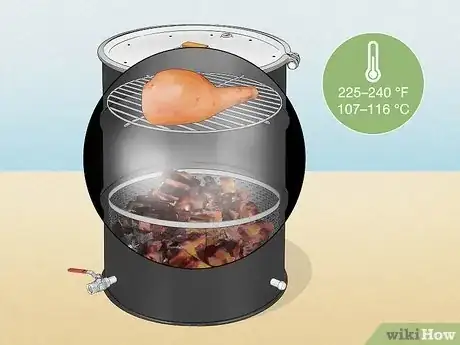
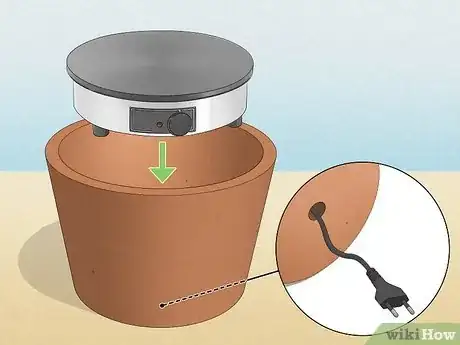

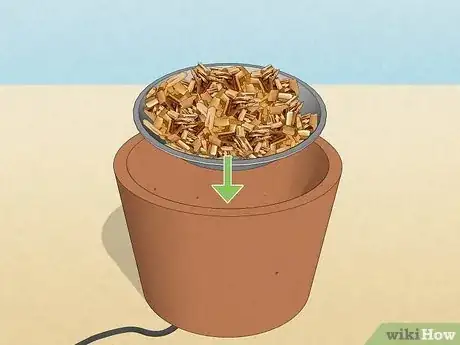
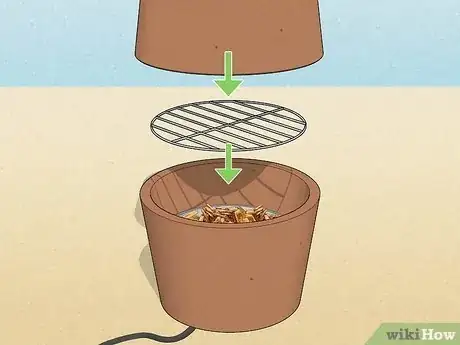


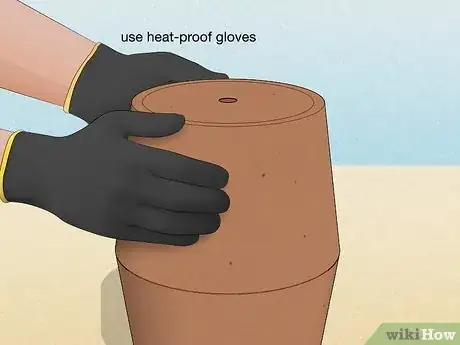


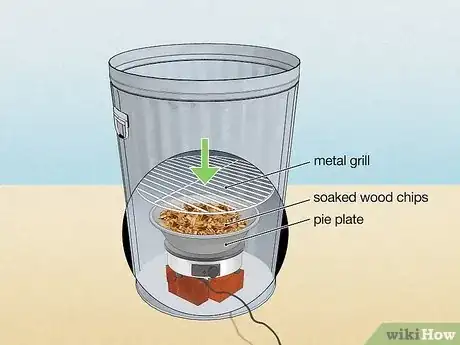
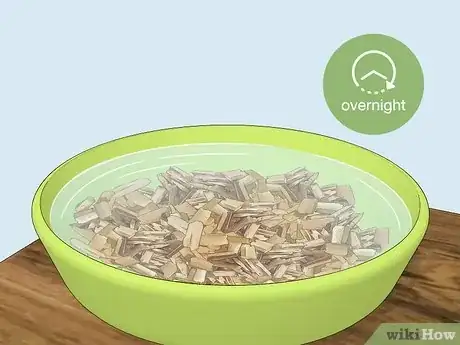
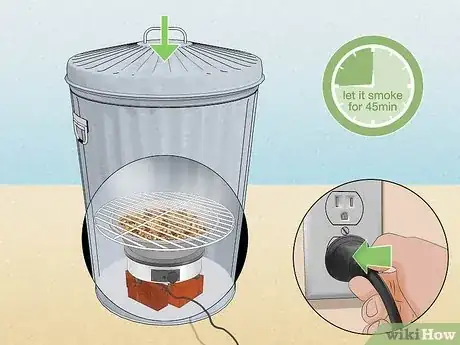
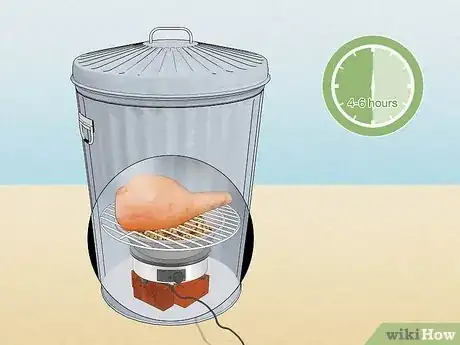




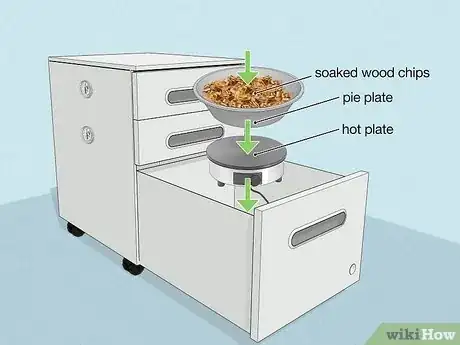
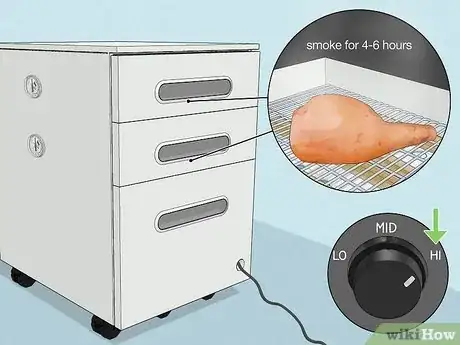
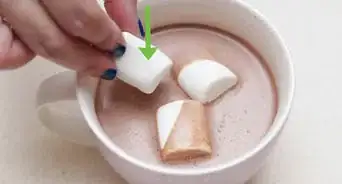
-Step-7-Version-2.webp)

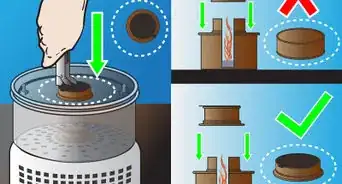




-Step-10.webp)
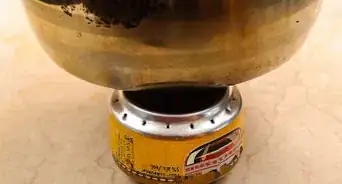
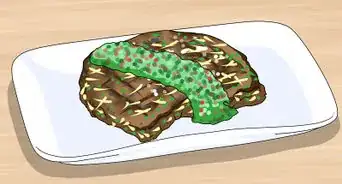








-Step-7-Version-2.webp)

